#Hemp Derived Oil
Link
Sativa Biscotti Terpenes - This is a little more than the sweet tasting smooth inhaling dolce you enjoy for dessert.Packed with Full spectrum Hemp oil it’ll be sure to send your mind and your thoughts on a vacation type journey to the Mediterranean. Floral and sweet. A great blend for lifting the spirits and relaxing the mind.
Slowly draw vapor into your mouth for a few seconds. Hold the vapor in your closed mouth for a second or two. Open mouth and breathe in the vapor to your lungs (not a “swallow”). Exhale after vapor is in lungs.
#Biscotti Hemp Vape#Full Spectrum Hemp Oil#Hemp Derived Oil#Therapeutic Terpenes#Sativa Biscotti Terpenes
0 notes
Text
#Hemp Derived CBD Oil Market#Hemp Derived CBD Oil Market Trends#Hemp Derived CBD Oil Market Growth#Hemp Derived CBD Oil Market Industry#Hemp Derived CBD Oil Market Research#Hemp Derived CBD Oil Market Report
0 notes
Text
Unlocking the Potential of CBD Oil: A Natural Remedy for Wellness
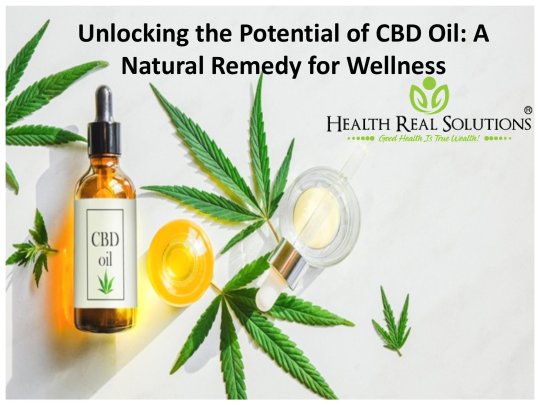
In recent years, CBD oil has gained significant attention for its potential health benefits, leading many to explore this natural remedy as a way to enhance their overall wellness. CBD, short for cannabidiol, is one of the many compounds found in the cannabis plant. Unlike its counterpart, THC (tetrahydrocannabinol), CBD is non-psychoactive, meaning it doesn't produce the "high" associated with marijuana. This quality has made CBD oil a promising option for those seeking relief from various ailments without the side effects typically associated with traditional medications.
CBD oil is commonly derived from industrial hemp, a cannabis variety containing minimal THC levels. Its popularity can be attributed to its potential to alleviate a range of symptoms, such as chronic pain, anxiety, depression, and even epilepsy. Research and anecdotal evidence suggest that CBD interacts with the body's endocannabinoid system, which plays a crucial role in regulating various bodily functions, including pain perception, mood, and immune response.
Furthermore, CBD oil is available in various forms, including tinctures, capsules, topicals, and edibles, allowing users to choose the most suitable method for their specific needs. It is essential to consult with a healthcare professional before incorporating CBD oil into your wellness routine, especially if you have underlying medical conditions or are taking other medications.
While the potential benefits of CBD oil are promising, it's important to remember that the industry is still evolving, and research is ongoing. As more studies are conducted, our understanding of CBD's full range of applications will likely expand. For those looking for a natural alternative to traditional treatments, CBD oil may hold the key to unlocking a healthier, more balanced life.
#CBD oil has gained significant attention for its potential health benefits#leading many to explore this natural remedy as a way to enhance their overall wellness. CBD#short for cannabidiol#is one of the many compounds found in the cannabis plant. Unlike its counterpart#THC (tetrahydrocannabinol)#CBD is non-psychoactive#meaning it doesn't produce the “high” associated with marijuana. This quality has made CBD oil a promising option for those seeking relief#CBD oil is commonly derived from industrial hemp#a cannabis variety containing minimal THC levels. Its popularity can be attributed to its potential to alleviate a range of symptoms#such as chronic pain#anxiety#depression#and even epilepsy. Research and anecdotal evidence suggest that CBD interacts with the body's endocannabinoid system#which plays a crucial role in regulating various bodily functions#including pain perception#mood#and immune response.#Furthermore#CBD oil is available in various forms#including tinctures#capsules#topicals#and edibles#allowing users to choose the most suitable method for their specific needs. It is essential to consult with a healthcare professional befor#especially if you have underlying medical conditions or are taking other medications.#While the potential benefits of CBD oil are promising#it's important to remember that the industry is still evolving#and research is ongoing. As more studies are conducted#our understanding of CBD's full range of applications will likely expand. For those looking for a natural alternative to traditional treatm#In recent years
0 notes
Text
CBD Oil Topical Uses - Nothing But Hemp
CBD oil has become a popular natural remedy for a variety of ailments, including chronic pain, anxiety, and insomnia.
But did you know that CBD oil can also be used topically?
CBD oil can be added to creams, lotions, and balms, allowing for targeted relief of pain and inflammation.
Topical CBD oil products are known to have several benefits. Firstly, CBD oil contains anti-inflammatory properties, making it an effective remedy for a variety of skin conditions such as acne, psoriasis, and eczema. The anti-inflammatory properties of CBD oil can also help reduce muscle soreness and joint pain when applied topically.
CBD oil is also known to have antioxidant properties, which can help protect the skin from damage caused by free radicals. The antioxidant properties of CBD oil can also help reduce the signs of aging and promote healthy, glowing skin.
At Nothing But Hemp, we offer a variety of high-quality CBD oil topical products that can be used to target specific areas of the body for pain and inflammation relief. Our CBD topicals include creams, lotions, balms, and even bath bombs, all infused with the beneficial properties of CBD oil.
Using topical CBD oil products is a safe and effective way to enjoy the benefits of CBD oil without the potential side effects of ingesting it. However, it is important to consult with a healthcare professional before using any new topical products, especially if you have any pre-existing skin conditions or allergies.
In conclusion, CBD oil has several benefits when used topically, including reducing inflammation and pain, protecting the skin from damage, and promoting healthy, glowing skin. Nothing But Hemp offers a variety of high-quality CBD oil topical products that can help you enjoy the benefits of CBD oil in a safe and effective way.
For More Information: (651) 330-9810
#cbd oil pills#cbd tincture for sale#cbd rich hemp oil#hemp derived cbd oil#cbd hemp oil effects#CBD oil near me#Local CBD oil#Delta 8 THC#how is delta 8 thc legal#Delta 9 THC#Delta 9 THC Beverages#Delta 9 White Out#cbd oil dosage for pain#Mimosa Strain#cbd pills for pain
0 notes
Text
LAMMAS
Also known as "Lughnasadh"

When is Lammas?
It is celebrated on August 1st, which is roughly the midway point between the summer solstice and autumn equinox.
What does Lammas mean?
It is a celebration of the ripening of the harvest, and preparation for the upcoming autumn. Apples and cherries are ripe for picking, and corn and beans stand tall and green.
Who does Lammas celebrate?
As in the name, the Celtic god Lugh is traditionally honored, in which he is the god of the sun, of craftsmanship, and of harvest. Some stories say that Lugh held a harvest on the first of August for his foster mother, Tailtiu.
LAMMAS TRADITIONS
Work with stones that heighten creativity, abundance, and wealth, such as moss agate, carnelian, red aventurine, yellow topaz, obsidian, and citrine.
Use musky herbs and flowers like peonies, hydrangeas, rosemary, sandalwood, and most importantly wheat. These beautiful pinkish flowers bring forth good fortune and good omens to past and future memories. Wheat is a major source of energy and provides healthy vitamins and minerals.
Consume a variety of grains, fruits, and vegetables, like corn, beans, apples, cherries, and fresh bread. Key crops become ready for harvest in the late summer and early fall, so consume them to honor farmers, the end of summer, and the God Lugh.
Wear and/or decorate with orange, bronze, beige, and light brown colors.
Incorporate animal imagery (e.g., photographs, drawings, figurines, et cetera) of roosters, pigs, and cows, which are in close association with farming and agriculture. In some cultures, these animals represent good fortune, power, and success.

LAMMAS ACTIVITIES
Bake bread. Wheat is a major part of Lammas and has historically been a staple crop during times of starvation. "Lammas" is actually a derivative of the Anglo-Saxon word "loaf mass."
Get creative. Lugh is the god of craftsmanship, after all. Write poems, paint, play an instrument--or whatever you choose.
Take a ritual bath: add a drop of rosemary oil, coarse salt, verbena, and flower petals to your bath.
Craft a wheat straw doll. They are also called "grain goddesses" or "harvest queens." Make them out of wheat stems or straws and use hemp/cotton thread to form the head and arms!
youtube
Make a Lammas altar. In the center of the altar, add an icon of Lugh or a god(dess) of your choice, and decorate around it with birch sticks, wheat, flowers, candles, brown and beige colors, and a cornucopia if you would like.
Get creative with recipes! Carlota Santos, the author of Magika, recommends a "Lammas cocktail" with red wine, cinnamon, and apples.
Carlota Santos' Lammas Cocktail Recipe

#witchblr#paganism#celtic#celtic paganism#lammas#lughnasadh#lugh#harvest#god of harvest#loaf mass#Youtube
18 notes
·
View notes
Text
Discussing Hemp-Derived Cannabinoids & Merchant Payment Processing

In recent times, hemp-derived cannabinoids, known for their potential health benefits and versatility, have been experiencing a surge in popularity. However, businesses within the hemp industry face a significant challenge when it comes to merchant payment processing. In this article, we will delve into the realm of hemp-derived cannabinoids and explore the essential aspects of merchant account processing, the acceptance of credit cards, and potential payment processing solutions.
The Expanding Hemp-Derived Cannabinoid Industry
Hemp-derived cannabinoids, with CBD being the most well-known, have gained immense popularity. Consumers are increasingly turning to these products to alleviate various conditions, including anxiety, chronic pain, and insomnia. Furthermore, the versatile nature of hemp-derived cannabinoids has given rise to a wide variety of products, ranging from oils and tinctures to edibles and skincare items.
This growing industry holds significant potential for businesses. However, it's not without its challenges, particularly in the domain of payment processing.
The Vital Role of Merchant Account Processing
Merchant account processing plays a pivotal role for businesses in the hemp-derived cannabinoid industry. It facilitates the acceptance of payments, including credit card transactions, from customers. Nevertheless, the complex regulatory landscape surrounding hemp and CBD products has made many payment processors cautious about engaging with businesses operating in this field.
Despite the 2018 Farm Bill, which legalized industrial hemp cultivation, uncertainties persist at both federal and state levels regarding the legality of hemp-derived CBD products. These uncertainties have led to hesitancy among traditional payment processors.
Consequently, businesses in the hemp industry often face challenges when trying to secure reliable and cost-effective merchant account processing services.
Embracing Credit Card Payments: A Business Necessity
Credit card payments are a cornerstone of modern commerce, offering convenience to customers and driving business growth. Accepting credit cards can significantly expand a hemp-derived cannabinoid business's customer base, as it caters to consumers who prefer the safety and convenience of card transactions.
However, the path to accepting credit cards can be riddled with obstacles for hemp-related businesses. Many payment processors categorize these businesses as high-risk due to the aforementioned legal ambiguities. This classification can lead to higher processing fees and more stringent underwriting requirements.
youtube
Payment Processing Solutions for Hemp-Derived Cannabinoids
While these challenges may seem daunting, several payment processing solutions are emerging to cater to the specific needs of the hemp industry.
Specialized Payment Processors: Some payment processors specialize in high-risk industries, including hemp-derived cannabinoids. These companies possess a profound understanding of the legal landscape and offer tailored solutions to address the unique challenges faced by businesses in this sector.
CBD-Friendly Banks: Certain banks are more receptive to collaborating with hemp businesses. Identifying a bank with experience in the industry can be a game-changer for businesses seeking to accept credit cards and simplify payment processing.
CBD Payment Gateways: CBD-specific payment gateways have emerged, focusing exclusively on the hemp industry. These gateways are designed to address the unique needs of CBD businesses, providing a seamless and compliant payment processing experience.
#high risk merchant account#high risk payment gateway#high risk payment processing#merchant processing#payment processing#credit card payment#credit card processing#accept credit cards#payment#youtube#Youtube
22 notes
·
View notes
Text
Character Intro: Damia (Kingdom of Ichor)

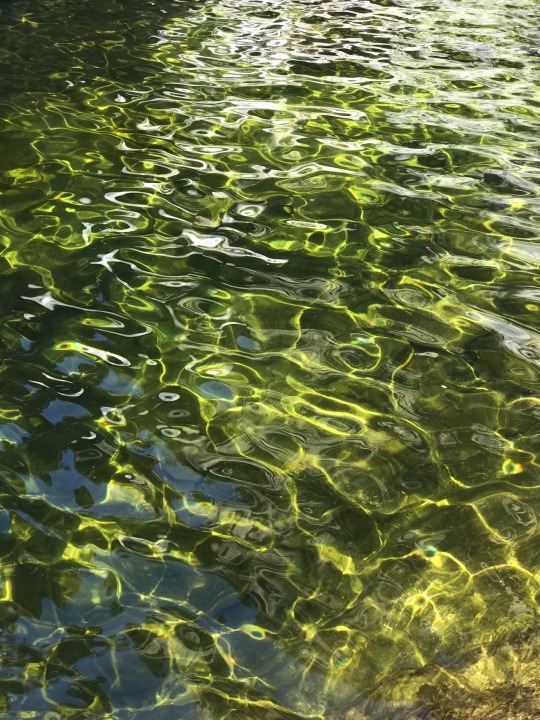


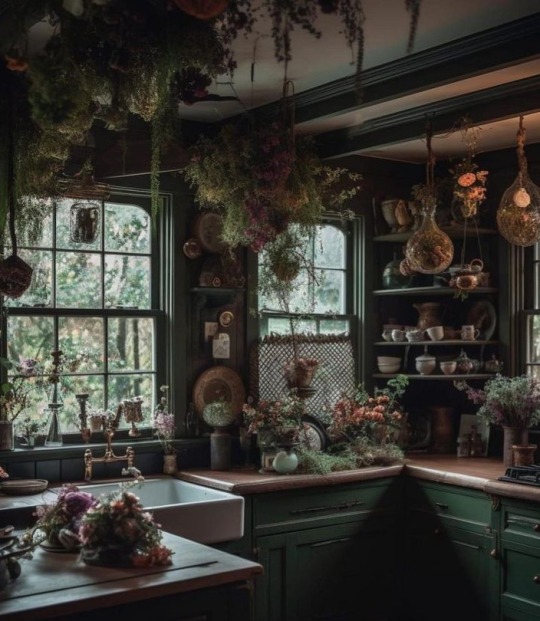
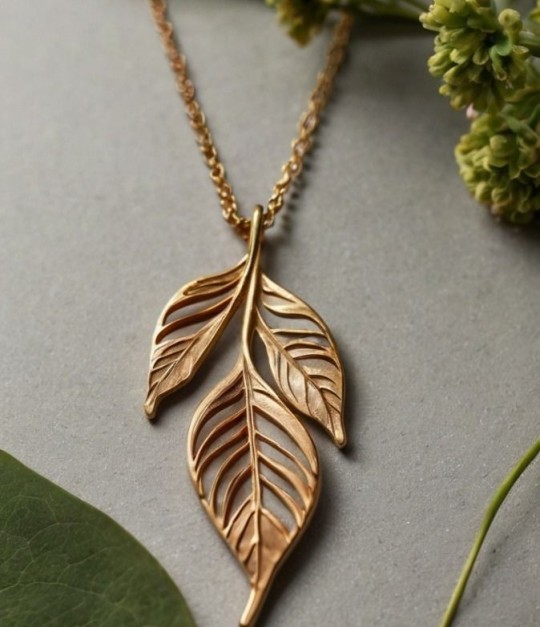
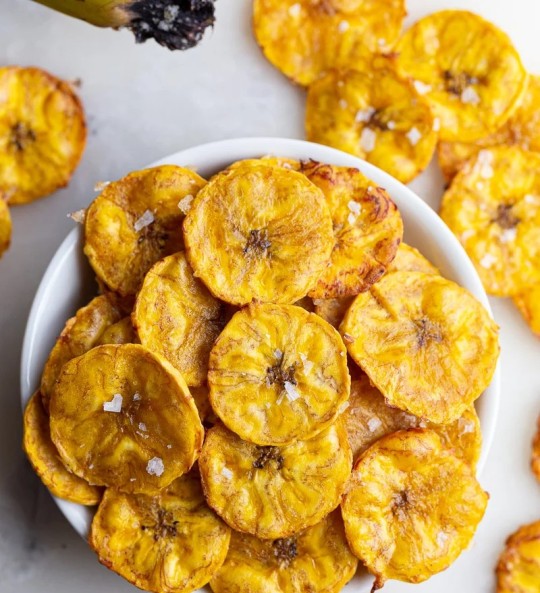
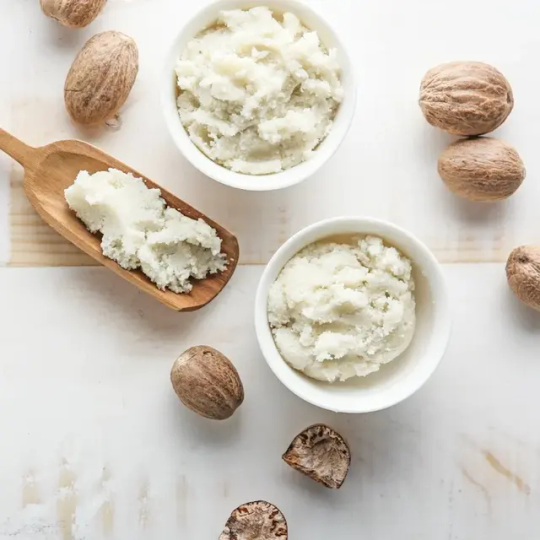
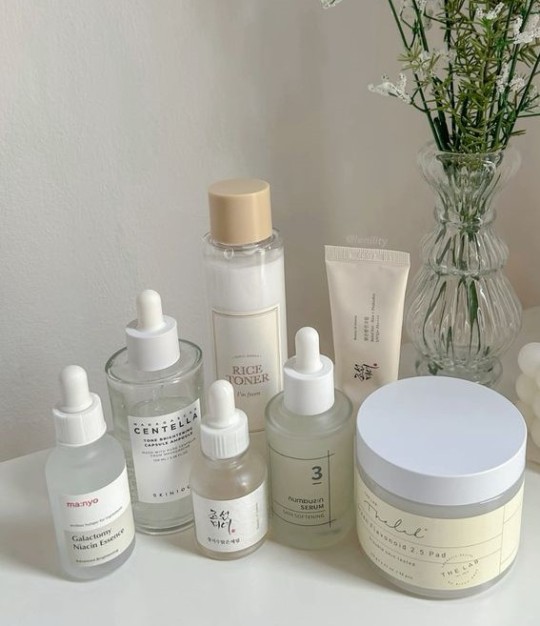
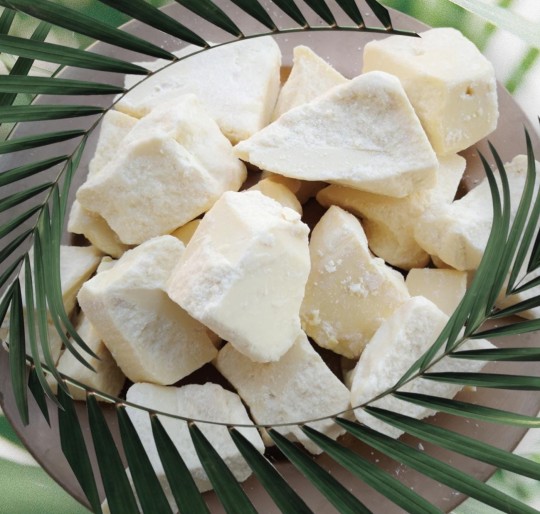
Nicknames- Ms. Bare by some of the male deities in the pantheon
The Ambrosia Goddess by the people of Olympius
Dewy by Pan
Age- 43 (immortal)
Location- Hearthwood neighborhood, New Olympus
Personality- She's an endearing naturalist- wholeheartedly attached to the outside world with a deep love & respect for nature. She enjoys her time outdoors, either by herself or with company. She's also serene, earthy, and observant. She's pansexual & is polyamorous.
She has the standard abilities of a goddess except shapeshifting. As the goddess of naturalness her other powers/abilities include ambrosia generation/manipulation, photokinesis, absolute restoration (restoring something back to its natural state), purification, energy matter manipulation, dew generation/manipulation, vitakinesis (healing), limited ecokinesis (nature manipulation), feromonikinesis (pheromone manipulation), limited cosmetic manipulation, and feromonigenesis (pheromone generation).
Damia splits her time between New Olympus & the state of Arcadia.
Her primary abode is her cottage in the Hearthwood neighborhood of New Olympus. The interior design is naturalistic with wood flooring, bamboo shades on the windows, stone countertops & wood cabinets in the kitchen, various woodland plants and flowers hanging from the ceiling, cotton, linen, & vegan leather furniture, as well as jute, wicker, and rattan furniture pieces. The color scheme is sage, cream, brown, forest green, & beige. In the backyard there's a small stone-lined freshwater pool, a garden, a compost pile, and a small greenhouse.
Damia has a plethora of pets! Birds such as cockatiels, canaries, lovebirds, parakeets, & diamond doves. There's also a tabby cat named Moss and two yorkshire terriers named Oat & Barley.
She primarily gets around by riding her bike, walking, and public transportation.
In Arcadia, Damia will stay at the commune of her friend/lover Pan (god of the wild, satyrs, shepherds, & rustic music).
She'll usually start off her mornings with an at-home session with her acupuncturist followed by an extended class of hatha yoga at the Zenesphere yoga studio.
She's fluent in Old Greek and Minoan.
When Damia bathes, she likes using her own vegan cruelty-free soap bars. Her personal favorite scents are the bergamot-mandarin & the clover-aloe. If Damia's not going anywhere or is planning to stay at home for a while, she can go a few days without bathing or showering.
While wearing clothes, more often than not, she doesn't wear undergarments- like a bra & panties. At home and when she's sleeping, she's nude.
Damia is a disciplined vegan. She doesn't eat food or use products derived from animals. All her clothes are vegan too, bought from ethical vegan fashion brands. Staples of vegan clothing include the use of fabrics like hemp, cotton, bamboo, soya-bean fiber, & banana wool. This also includes faux leather as well as ethical and sustainable jewelry. She's also a dedicated recycler!
A typical breakfast for her is a big bowl of Earthly Harvest rice cereal with coconut milk. She also enjoys the Golly Grains fruit medley cereal, roasted corn avocado toast, sweet sesame tahini oatmeal (topped with sliced apricot, toasted pistachios, & pomegranate seeds), chia pudding, and oat flour pancakes (topped with sliced bananas & organic coconut syrup). She's also a fan of the vegan breakfast burrito from The Bread Box (added with scrambled tofu, mushrooms, roasted sweet potatoes, and creamy tahini sauce).
She's a fan of wearing body jewelry!
A notable physical feature of Damia are her long dark brown dreadlocks. She likes decorating them with shells, hair cuffs, hair wires, & hair jewelry. She swears by the Hairology soap free shea butter shampoo bar, the Olmorfia clarifying detox shampoo, as well as the Glory's Crown castor oil deep conditioner and healthy hair oil blend.
Her fashion style is totally bohemian. Staples in her closet include oversized sunglasses, shawls, ties, & headbands, eclectic prints, flowy maxi skirts and dresses, halter tops, peasant blouses, tube tops, as well as quirkly embellishments. Damia's favorite fashion brand that focuses on the bohemian style (and is also ethical & vegan) is Olive + Willow, started by a dryad fashion designer named Wren Evergreen who she's also friends with!
A go-to drink for her is a lychee martini. She also likes mineral water, aloe vera juice, coconut milk, orange juice, coconut water, lychee juice, sparkling mint infused water, ginger ale, pomegranate juice, gin martinis, good farmer cocktails, peartinis, shirley temples, her homemade spiced strawberry-goji berry smoothies, botanical beer, cashew milk, & honeydew martinis. Usuals from The Roasted Bean includes a small chestnut praline almondmilk latte, a large iced green tea, and an olympian sized grapefruit-ginger splash.
Damia makes her own plant based vegan butter.
In the pantheon, she's known for her tasty homemade granola.
The superfood salad along with a small spinach soup is her go-to order at The Bread Box.
Damia typically doesn't wear makeup. She firmly believes that makeup should accentuate one's beauty, not cover it. When she's in the mood to wear cosmetics, Damia is a fan of the makeup brand Apothecary, created by Hygieia (goddess of hygiene & cleanliness). Her go-to products to use are the illuminating super gel lightweight dewy highlighter, the hydro grip hydrating makeup primer, the talc-free brightening blush in the shade "Blessed", the shine on non-sticky lip gloss in the shade "Almond", the super skin tint sunscreen foundation in the shade "Caramel Sugar" (a medium shade with golden olive undertones), and the non-toxic cruelty free nail polish color "Sugar Cookie," a sheer cream shade.
She loves snacking on air fried plantain chips.
Damia had a full frontal spread in the men's magazine owned by Zeus (god of the sky, thunder, & lightning). A lot of beings considered it daring when her thick unshaved pubic hair was shown in the nude shoots. She doesn't understand the discord her photos started up on Fatestagram.
She has quite the book collection on botany and anthropology.
Her primary means of income comes from teaching environmental science at New Olympus University. She also writes for the beauty section in Vital Essence magazine. With her own personal endeavors, Damia owns a small all-natural shop in the Hearthwood neighborhood called Oasis. Products sold there include protein powders, nutritional supplements, artisinal body products (like raw cocoa & shea butter), and even healing crystals. The store has its own official website.
A guilty pleasure for her are vegan spring rolls with peanut dipping sauce. She gets them at Garden Gatherings, a vegan restaurant owned by Pasithea (goddess of hallucinations & relaxation).
Damia's best friend in the entire pantheon is Nymphe (goddess of self-care). They call, text, & hang out with each other all the time. She's also good friends with Nárkosi (goddess of sedation), Demeter (goddess of the harvest & agriculture), Ichnaea (goddess of tracking), Kópros (god of manure & excrement), Hesychia (goddess of quiet, stillness, rest, & silence), Aegle (goddess of good health), Pherusa (goddess of substance & farm estates), Epione (goddess of soothing pain), Thilasmós (goddess of nursing), Elais (goddess of oil), Apheleia (goddess of simplicity), The Ourea (esteemed mountain gods), Corymbus (Cory) (god of the ivy), Anatole (goddess of sunrise), Gymnasia (goddess of excercise & gymnastics), Elpis (goddess of hope), Sponde (goddess of libations), Philotes (goddess of sex, friendship, & affection), Sardo (one of The Nesoi), Hestia (goddess of the hearth), and Priapus (god of fertility, vegetable gardens, livestock, sexuality, & masculinity).
She greatly admires Gaia (goddess of the earth). She met the great goddess herself when she was invited to her estate in Meteora. Damia was more than happy when she was allowed to ride Gaia's dragon Gwyndern.
Her favorite frozen treat is dragonfruit sorbet.
Damia is a lover of Philotes and Priapus. Her current main lover is a lotus eater named Ambrose. They have had four ways a few times.
Her first lover was Cyamites (god of beans).
She can play the acoustic guitar, ukulele, mandolin, & conga crum.
A brand new business venture she's stepping into is a raw vegan restaurant called akatérgastos- scheduled to open up in the Queenstown neighborhood. The restuarant is currently in construction. The hopeful appeal is that everything served in the restaurant is vegan, non-dairy, and gluten free- with nothing being cooked over 120 degrees. Pan, Nymphe, & Priapus were financial backers. If the grand opening is a success, Damia plans for two more locations- in Arcadia and the Hearthwood neighborhood.
Her favorite dessert are the mini fruit medly tarts from Hollyhock's Bakery.
She once spent a long weekend at The Lytêrios Oasis (a nudist resort) with Nymphe, Sardo, Hesychia, and Philotes.
In her free time Damia enjoys gardening, sunbathing, reading, swimming, football (soccer), surfing, volleyball, going to flea markets, cloud surfing, meal prepping, hiking, mountain climbing, going to the spa, horseback riding, photography, sailing, bird watching, & making love.
Her favorite meal is spicy kale with coconut fried rice.
"Being natural isn't a statement. It's the closest thing you can get to being yourself."
#my oc#my character#oc character#my oc character#oc intro#character intro#oc introduction#character introduction#modern greek gods#modern greek mythology#greek myth retellings#greek goddess#greek goddesses#greek mythology#greek pantheon#greek myths
2 notes
·
View notes
Text
MATERIAL RESEARCH
Looking into regenerative/recycled/recyclable/environmentally-friendly materials.
Repreve: Recycled PET bottle fabric
“We transform plastic bottles into certifiable, traceable, high-performance yarn … REPREVE® is made with less carbon, using non-toxic products. It reduces global warming potential compared to conventional virgin polyester. We empower brands and consumers to take a positive step … Our collaboration with Oerlikon Barmag on the eAFK EvoCooler technology has reduced the energy required to texture our yarn. REPREVE® SmartDye™ and WaterWise™, both proprietary innovations, have reduced the amount of water and energy used in the dye process.” - https://repreve.com/discover-repreve
Econyl: Recycled fishing net and nylon fabric
“Fishing nets, together with other nylon waste, are regenerated into ECONYL® nylon. … As well as being a solution on waste, ECONYL® regenerated nylon is also better when it comes to climate change. It reduces the global warming impact of nylon by up to 90% compared with the material from oil.” Also recycled into the material: old carpets, pre-consumer waste, and textile scraps. - https://www.econyl.com/the-process/
Agraloop Biofibre: created from agriculture/food waste
“The Agraloop™ refines natural fibers derived from agricultural crops into textile-grade fiber called Agraloop™ BioFibre™. A NEW Natural Fibermindfully sourced for circularity. With our specialized wet processing technique, cellulose fiber from stems and leaves are purified into soft fiber bundles ready to spin into yarns. The Agraloop processes left-overs from various food and medicine crops including, oilseed hemp/flax, CBD hemp, banana, and pineapple.” - https://circularsystems.com/agraloop
Pinayarn: Fabric made from pineapple waste
“Piñayarn® by Ananas Anam is an innovative and low impact yarn, made from waste pineapple leaves. Piñayarn offers a 100% plant-based, recyclable, and biodegradable textile solution for a world otherwise dominated by petroleum-based textiles and resource intense virgin fibres.” - https://www.ananas-anam.com/pinayarn/
Recycled Cotton
“Recycled cotton can be generally defined as converting cotton fabric into cotton fiber that can be reused in textile products. Recycled cotton is also commonly referred to as regenerated cotton, reclaimed cotton, or shoddy. Recycled content includes recycled raw material, as well as used, reconditioned, and re-manufactured components.
Pre-consumer: includes scraps created by yarn and fabric by-products
Post-consumer: includes garments, upholstery, towels, household items to be repurposed
The largest volume of recycled cotton sources is produced through pre-consumer waste, such as cutting scraps. Post-consumer waste is more difficult to sort through due to various color shades, fabric blends, and it is generally a more labor-intensive process.” - https://cottonworks.com/en/topics/sustainability/cotton-sustainability/recycled-cotton/
Mylium: Mycelium-based leather
“At Mylium we treasure fungi that grow in a thread-like network, called mycelium. Mycelium grows by extending and branching its tips in search of nutrients. The threads hook strongly together and are pressed to form a uniform sheet.” -https://www.mylium.nl/technology/
Hemp fabric
“One of the most eco-friendly aspects of hemp is that it uses very little water, about 1/20th of the amount of water it takes to grow cotton and can often be rain-fed. Hemp can grow in almost all soil conditions, and unlike cotton (which depletes the soil of nutrients) hemp’s deep-reaching roots preserve the topsoil and subsoil. Hemp plants grow densely as well, leaving no room for weeds and competing plants and is less vulnerable to insects, which means little to no use of pesticides.” Hemp fabric is also biodegradable, and depending on where it is sourced from- largely produced by sustainable practices. - https://wearethefabricstore.com/au/sustainability/gots-organic-hemp
Lyocell and Modal: fibres made from sustainable wood
“TENCEL™ Lyocell and Modal fibers help to maintain the environmental balance by being integrated into nature’s cycle. The fibers originate from the renewable raw material wood, created by photosynthesis. The certified biobased fibers are manufactured using an environmentally responsible production process. The fibers are certified as [100%] compostable and biodegradable, and thus can fully revert back to nature.” - https://www.tencel.com/b2b/sustainability
An interesting article on the incredible role of mycelium and waste management...
3 notes
·
View notes
Text
How Much Does Cannabis Oil Cost?

Whether you’re a new or experienced cannabis consumer, you’ve likely wondered, “how much does cannabis oil cost?”
This new therapeutic product has earned high praise from medical and recreational users. Each bottle of cannabis oil, also known as a tincture, comes with varying ratios of cannabinoids at relatively steep prices compared to other health- and wellness-related products.
Despite the high markup for cannabis oil, many consumers regularly use this delivery method to reap all of the mental and physical benefits of two major cannabinoids: cannabidiol (CBD) and delta-9-tetrahydrocannabinol (THC).
A number of factors affect the price of the oil. You can expect to pay anywhere from $30 to up to $200 for a single bottle. Here’s what you need to know about shopping smart for cannabis oil.
How Much Does CBD Oil Cost?
CBD oil has become widely accessible to the entire nation. It’s revered for its non-psychoactive and therapeutic effects on pain, anxiety, inflammation, seizures, and other debilitating symptoms.
The health and wellness aspect of CBD oil commands a premium price for its symptomatic relief. Apart from its medical applications, there are plenty of other factors that determine how much consumers pay for cannabis oil in general.
Katie Stem of Peak Extracts told Weedmaps, “When examining a cost analysis from a production perspective, you look at labor, materials, packaging, labels, potency/purity testing, marketing, and shipping distribution.”
For manufacturers, bulk CBD can range from $3 to $15 per gram, which works out to be less than one cent to 1.5 cents per milligram. Consumers end up paying about $50 to $60 per 1,000 mg bottle, or about 5 to 20 cents per milligram.
Why Are People Paying Premium Prices for CBD Oil?
CBD oil products, in particular, offer many potential health benefits for medical and recreational consumers. People generally buy CBD oil to help them with inflammation, pain, anxiety, stress, depression, muscle spasms, fatigue, sleep disorders, and plenty of other symptoms.
Furthermore, CBD doesn’t produce the negative side effects, especially if you take the appropriate dosage.
Despite the popularity of CBD oil products, their efficacy has not been approved by the Food and Drug Administration. Only the CBD-based drug, Epidiolex, has been approved for medical use.
In fact, many hemp companies have received warning letters from the FDA for claiming unproven health benefits on its packaging and advertising. While CBD oil can help supplement a conventional treatment plan, it’s important to consult with your physician before starting a cannabis oil regimen.
How Much Does Cannabis Oil Cost?
Cannabis oil varies in price based on cannabinoid content, as well as the region where it’s sold. Seattle-based Headset published a report detailing pricing data for a variety of marijuana products in Washington State, California, Nevada, and Colorado. The price of THC oil varied by state.
For example, Colorado had the highest price at 41 cents per milligram, which was 64 percent higher than Nevada’s 25 cents per milligram. California and Washington both had a 30 cent per milligram average price for THC oil.
Here are just a few examples of THC oil prices in the Southern California market:
- Mary’s Medicinals The Remedy THC has 1,000 mg of THC priced at $56, about 6 cents per milligram.
- Raw 1:20 THC:CBD Focus tincture has 1,000 mg priced at $87, about 9 cents per milligram.
- Select 1:1 Peppermint oil has 1,000 mg priced at $68, about 7 cents per milligram.
- Care by Design 8:1 CBD-rich sublingual drops has about 240 mg priced at $40, about 16 cents per milligram.
- Humboldt Apothecary Relax CBD 3:1 tincture has 250 mg priced at $65, about 26 cents per milligram.
- Releaf 1:1 CBD:THCa tincture has 900 mg priced at $99.62, about 11 cents per milligram.
Marijuana vs. Hemp-Derived Cannabis Oil
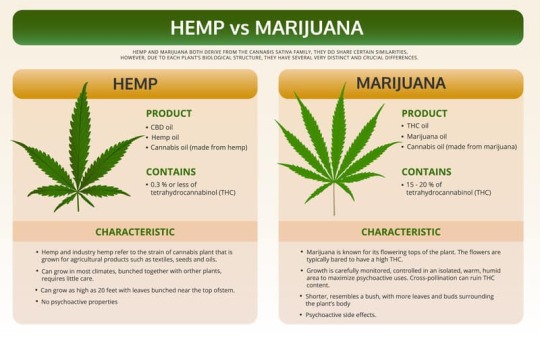
Cannabis oil products can be derived from either marijuana or hemp plants. Both belong to the same Cannabis sativaplant species. Marijuana plants are primarily bred for a THC-rich resin, while hemp plants produce high-CBD resin with only trace amounts of THC.
Hemp-derived oil tends to be more affordable than marijuana-derived oil. When shopping for cannabis oil, consumers may run across terms such as full-spectrum, broad-spectrum, or distillate. Each comes with varying price points depending on many factors, including its source.
Full-spectrum products contain the original chemical profile of a strain, including THC, CBD, and terpenes. Broad-spectrum contains everything in the plant but the THC, for a non-intoxicating experience. Distillates only contain one cannabinoid, either CBDA or THCA. The compounds in full-spectrum and broad-spectrum cannabis oil not only add to the aroma, but also the effects and the price.
Research into cannabinoids indicate that the interaction between different cannabinoids and terpenes produces an “entourage effect.” This synergistic effect of the plant’s compounds is thought to enhance the therapeutic benefits of a cannabis product.
For this reason, many medical consumers look for full- or broad-spectrum cannabis oil. However, someone who doesn’t want the aroma of intoxication of cannabis, may stick with a CBD isolate.
Hemp-derived CBD oil is more widely available than cannabis-derived tinctures. Ever since the 2018 Farm Bill passed, hemp-derived CBD is legal all over the country.
If you’re hoping to buy cannabis-derived tinctures, you must live in a state that allows medical cannabis (at the very least). In these states, cannabis-derived tinctures tend to be pricier because hemp isn’t as expensive to produce.
Factors Affecting Cannabis Oil Costs
A bottle of cannabis oil can vary in price based on an assortment of factors from production to marketing costs. For example, cannabis oil made from organically grown hemp from Colorado will have a higher price than oil made from a plant grown in a state with a newer market.
Besides quality, potency also affects the price of a product. Cannabis oil with 1,000 mg of cannabinoids will be more expensive than oil with fewer cannabinoids per milliliter.
The cannabis industry has unique costs and challenges that can drive up the price of cannabis oil. For example, lab testing requirements can force companies to spend hundreds of thousands of dollars testing their oil for contaminants.
Lab testing can range from $100 to $400 per sample tested. In many cases, cannabis must be tested various times throughout the supply-chain process.
Furthermore, the cannabis industry can’t write off business expenses because according to the US federal government, the marijuana plant is a Schedule I drug with no medicinal value.
Dispensaries and producers may hike up their prices to offset some of these overhead costs. Industry experts believe that full legalization will help build a stronger regulatory framework for the industry to benefit both companies and consumers.
Is Cannabis Oil Lab Tested?
Certified laboratories can provide a complete analysis of licensed cannabis product samples. Third-party labs can test for potency including its cannabinoid and terpene profile.
Labs also test for pesticides, microbial contamination, residual solvents, and other harmful chemicals that can remain after the extraction process.
Essentially, lab testing ensures the product you are buying has the potency listed on the label. More importantly, lab testing ensures the product you are consuming has no harmful contaminants that can offset its therapeutic effects.
Lab testing can significantly increase the price of cannabis oil products. However, it’s up to you to make sure your product is actually lab tested. Most companies who lab test provide a certificate of analysis (COA) on its website. Simply type in the batch number found on the packaging into their lab results page.
Buying from a licensed cannabis retailer is one of the only ways to ensure you are getting a product tested by a third-party lab. While buying hemp-derived CBD oil online without lab testing may be cheaper, we recommend you spring the extra few bucks for peace of mind and security.
How to Find Reliable and Cost-Effective Cannabis Oil
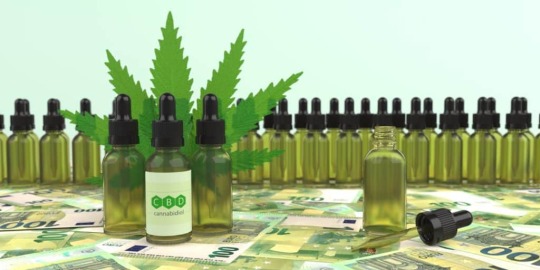
Finding the right cannabis oil at the right price point can seem like an impossible task. Luckily, there are a few ways you make sure you get the most for your dollar based on your desired results.
It can take a few hours, days, or weeks of research to find the right cannabis oil. While price matters, some affordable cannabis oils can be just as effective as the most expensive cannabis oils. Here are a few ways to save money on cannabis oil.
- Buy cannabis oil in bulk. Larger quantities mean more upfront costs, but the product often comes with considerable savings of up to 40 percent per milligram. Manufacturers pass their savings on packaging onto you. Buying in bulk can also earn you free shipping with most hemp-derived oil companies.
- Follow your favorite cannabis oil companies or retailers on their social media channels to scope out special discounts, promotions, and giveaways.
- Sign up for low-income, veteran, or other financial assistance programs if you qualify. Not every company offers this perk, but the ones that do may give you a discount of more than half off if you can send qualifying proof or apply for a spot in their program.
- Buy based on price-per-milligram. In order to calculate the price per milligram of a cannabis oil bottle, divide the total price of the product by the milligrams of cannabinoids in the product.
- When searching for bargains, always make sure you buy cannabis oil that has a certificate of analysis (COA) from an accredited third-party laboratory ensuring you have a safe and pure products.
Will CBD Prices Ever Come Down?
Industry insiders believe the price of cannabis oil will eventually go down, but not anytime soon. The industry’s strict regulations place an enormous burden on cannabis companies in terms of testing, taxes, and other rules on the plant’s production.
A variety of factors serve to limit the amount of cannabis production possible. Whether it’s commercial cannabis bans in your town or excessive licensing costs, it takes a lot of money to start up a cannabis company.
Cannabis oil may never be the most affordable natural medicine available, at least compared to pharmaceutical or herbal supplement products. However, prices are expected to go down as lawmakers become more supportive of the industry.
Once they remove the harsh limits imposed on weed companies, maybe then will the prices become accessible for those who truly need it.
As you can see, the price of cannabis oil varies widely based on the source, quality, potency, location, size, and other manufacturing and marketing costs associated with the product.
The novelty of the industry and a lack of regulation have contributed to cannabis oil’s high prices, but consumers are hopeful that one-day cannabis oil can reach an accessible price point for everyone that needs it.
Stay tuned to the Cannabis Training University blog for updates on:
- price of cannabis oil
- THC oil cost
- how much does CBD oil cost
- Colorado cannabis oil cost
- THC oil price per gram
- how to ingest cannabis oil
- cost of CBD oil products
- cheapest full-spectrum CBD oil
Learn to Grow High CBD Cannabis
There's never been a better time to learn to grow with legalization efforts ramping up worldwide! Enroll in Cannabis Training University to learn how to grow your own medicine so you can control your budget.
Become the next great cannabis grower with online cannabis training from the #1 rated marijuana school.

Read the full article
8 notes
·
View notes
Text
Find Out When to Get HHC Vape and Hybrid Disposable Vape

When it comes to the pricing of HHC vape and hybrid disposable vape, there are several factors that come into play. One of the primary factors is the type of vape you are looking for. HHC vapes are made from pure hemp-derived Delta 8 THC oil and are slightly more expensive than traditional vapes. On the other hand, hybrid disposable vapes are a more affordable option as they contain a mix of Delta-8 and Delta-9 THC oil.
Read More:https://arinageorgeblogs.wordpress.com/2023/03/29/dont-miss-out-on-savings-discover-the-best-time-to-buy-hhc-vape-and-hybrid-disposable-vape/
#vape#vapelife#vapeporn#vapenation#vapefam#vapeon#vapecommunity#vapelyfe#vapestagram#instavape#vapedaily#vapetricks#vapers#vaper#vapelove#vapepics#vapeshop#vapehooligans#vapesociety#vapefamily#vapefriends#girlswhovape#vapes#calivapers#vapefamous#vapeallday#vapegram#vapeworld#vapelifestyle#vapejuice
8 notes
·
View notes
Text

#HEALTHNugget
Is CBD Oil Safe and Worth Your Money?
A medical cannabis expert weeds the hype from the truth about the herbal cure for pain, depression, anxiety and insomnia.
You can’t turn on a daytime TV program or flip open a lifestyle magazine without hearing or reading about CBD, short for cannabidiol. It’s the biggest buzzword in holistic health news, and statistically speaking, it is expected to reach around 1.8 billion dollars in U.S. consumer sales by 2022, a whopping increase from around half a billion dollars in 2018.
What exactly is CBD?
CBD is the non-intoxicating component of the cannabis sativa plant. Cannabis plants can either be classified as hemp or marijuana depending on the quantity or percentage of THC in either plant. This distinction was established by the FDA: Cannabis plants with 0.3 percent or less of THC are considered hemp and those with more that 0.3 percent are consider marijuana.
So in a nutshell, CBD that is derived from hemp will not make you high. You should also ask your primary physician about using CBD while taking medications.
Kisha Vanterpool, medical director of Medicinally Jointed, a medical cannabis spa and alternate health practice located in South Philadelphia, says the biggest misconception her patients have is understanding the difference between CBD and THC.
“Some associate CBD solely with cannabis (marijuana) which carries its own stigma of being used to attain a high,” the board-certified internist explains. “But really, cannabis is an herbal medicine that has many benefits. Through educating my patients around the plant as medicine and how it interacts within our bodies, patients then become more open to its use.”
What is CBD used for?
Studies show consumers are using CBD — sold in oils, lotions, balms, bath salts, coffee, oral sprays and gummies — as a specific therapy for pain, anxiety, depression and sleep disorders. Depending on the product, prices range from $20 to $100.
Nira Hyman turned to CBD three years ago to help manage chronic back pain and joint inflammation she’s endured for about 15 years. The 46-year-old was recently diagnosed with an autoimmune disease, a type of rheumatoid arthritis called ankylosing spondylitis, which affects the spine.
“Chronic pain is quite isolating, so I’m open to trying almost anything. My research led me to THC, then to CBD. It helps mute the pain. It’s still there, but the volume of the pain is dialed down. CBD doesn’t manage my pain on its own, but using that along with other stuff on my regimen can make a difference,” she says.
“Most of what I use is handmade. It’s expensive but worth it. Friends ship balms or soaks to me. And yes, the sellers are Black. I believe strongly that Black women belong in the cannabis industry, so the louder our voices the better.”
The Brooklyn, New York, native also uses CBD to alleviate anxiety. “It may be a placebo effect, but I do feel it helps my anxiety. And I prefer using something that’s natural and naturally medicinal. I’d much rather take CBD — and I do use high doses — than opioids. My doctors agree, off the record,” says Hyman.
Vanterpool recommends CBD to her female patients to help them with anxiety, insomnia, hot flashes, menstrual cramps, endometriosis and other chronic pain. When shopping for CBD products, she suggests consumers research the product “to ensure that it truly contains CBD and has been tested for contaminants such as pesticides, bacteria and fungus/mold.”
Is CBD FDA-regulated?
Not currently. The U.S. Food and Drug Administration (FDA) recently published a consumer update on its website (FDA.gov) that addresses the claims that cannabinoid (CBD) is a cure-all, risk-free miracle drug.
Although the FDA is presently gathering data from health professionals, cannabis industry representatives and patients to learn more about the efficacy of CBD, the agency wrote, "there are many unanswered questions about the science, safety and quality of products containing CBD.”
Where can I find CBD products in my area, and is it legal in all fifty states?
Remember the 69-year-old grandmother from North Carolina who was arrested at Disney World for packing CBD oil in her purse?
Federal law says CBD oil products are legal to possess if they contain no more than 0.3 percent THC, and CBD products are readily available online. Do your research to find products that are safe, effective and legal. Consumerreports.org has an informative guide. Be aware, however, that some states like Florida, Ohio and Texas generally don’t differentiate hemp from marijuana. So before you purchase or travel with CBD, check the state laws.
6 notes
·
View notes
Text
Things You Should know About the CBD Oil
Cannabidiol is primarily made from hemp. Hemp is different from marijuana because it does not contain tetrahydrocannabinol (THC), which has psychoactive properties. THC is the ingredient in marijuana that makes users high after ingesting it. Only very low concentrations of this intoxicating cannabinoid are found in hemp. In fact, for hemp to be considered marijuana, it must contain less than 0.3% THC.
Many people are now interested in hemp-derived cannabidiol because of its non-psychoactive properties. It simply calms the user's nerves by giving them a relaxing feeling without making them high.
CBD oil is obtained or extracted from the flowers, leaves and stems of the hemp plant through an extraction process. The most commonly used and also effective extraction method is the CO2 extraction method. Cannabidiol oil is extracted along with other essential cannabinoids and terpenes in the correct proportions.
Benefits of CBD oil
CBD oil has many benefits for humans as it has demonstrated its extraordinary capabilities in the health and medical field. Here are the benefits:
• Relieves chronic pain: The human body consists of various systems that ensure its overall performance and health. One such system is the endocannabinoid system (ECS). The ECS regulates and controls certain functions in the body, such as: B. Mood, sleep, pain, appetite and energy control. Marijuana oil interacts with receptors in the ECS to reduce pain and inflammation.
• Stops epilepsy and seizures: These are the general benefits of cannabis oil. The Food and Drug Administration has approved a cannabis oil medication called Epidiolex. This drug is used to treat two rare forms of epilepsy in children known as Dravet syndrome and Lennox-Gastant syndrome. Marijuana oil is effective in stopping seizures and treating epilepsy.
• For the treatment of skin diseases: Effectively treats skin diseases such as acne, eczema and sclerosis with its antibacterial properties. In the case of acne, it reduces the production of sebum from the sebaceous glands.
• Cannabidiol can treat cancer: Cannabis oil helps fight cancer by stopping the growth of cancer cells. This stops the aggressive spread of breast cancer. However, research on these benefits has been carried out on mice.
• Cannabidiol oil helps reduce anxiety and depression: Many people in the world today suffer from anxiety and depression. Cannabis oil has been shown to be effective in this regard, calming patients' nerves and giving them a non-intoxicating feeling of relaxation.
In fact, CBD oil is a product that works wonders. Research and studies regarding CBD are still ongoing because there are still many things that are unknown. However, when purchasing CBD oil, it is recommended that you purchase from a reputable CBD company with high-quality CBD oil.
2 notes
·
View notes